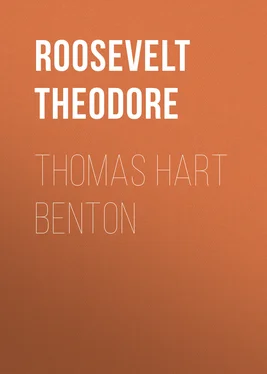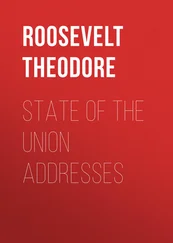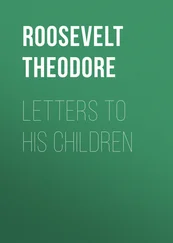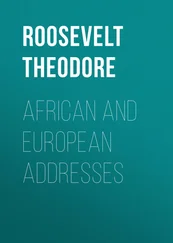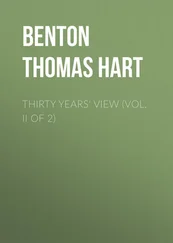Theodore Roosevelt - Thomas Hart Benton
Здесь есть возможность читать онлайн «Theodore Roosevelt - Thomas Hart Benton» — ознакомительный отрывок электронной книги совершенно бесплатно, а после прочтения отрывка купить полную версию. В некоторых случаях можно слушать аудио, скачать через торрент в формате fb2 и присутствует краткое содержание. Жанр: foreign_prose, История, foreign_edu, foreign_antique, на английском языке. Описание произведения, (предисловие) а так же отзывы посетителей доступны на портале библиотеки ЛибКат.
- Название:Thomas Hart Benton
- Автор:
- Жанр:
- Год:неизвестен
- ISBN:нет данных
- Рейтинг книги:4 / 5. Голосов: 1
-
Избранное:Добавить в избранное
- Отзывы:
-
Ваша оценка:
- 80
- 1
- 2
- 3
- 4
- 5
Thomas Hart Benton: краткое содержание, описание и аннотация
Предлагаем к чтению аннотацию, описание, краткое содержание или предисловие (зависит от того, что написал сам автор книги «Thomas Hart Benton»). Если вы не нашли необходимую информацию о книге — напишите в комментариях, мы постараемся отыскать её.
Thomas Hart Benton — читать онлайн ознакомительный отрывок
Ниже представлен текст книги, разбитый по страницам. Система сохранения места последней прочитанной страницы, позволяет с удобством читать онлайн бесплатно книгу «Thomas Hart Benton», без необходимости каждый раз заново искать на чём Вы остановились. Поставьте закладку, и сможете в любой момент перейти на страницу, на которой закончили чтение.
Интервал:
Закладка:
Adams's message was properly open to attack on one or two points; notably in reference to its proposals that we should endeavor to get the Spanish-American States to introduce religious tolerance within their borders. It was certainly an unhappy suggestion that we should endeavor to remove the mote of religious intolerance from our brother's eye while indignantly resenting the least allusion to the beam of slavery in our own. It was on this very point of slavery that the real opposition hinged. The Spanish States had emancipated their comparatively small negro populations, and, as is usually the case with Latin nations, did not have a very strong caste feeling against the blacks, some of whom accordingly had risen to high civic and military rank; and they also proposed to admit to their congress the negro republic of Hayti. Certain of the slave-holders of the South fiercely objected to any such association; and on this occasion Benton for once led and voiced the ultra-Southern feeling on the subject, announcing in his speech that diplomatic intercourse with Hayti should not even be discussed in the senate chamber, and that we could have no association with republics who had "black generals in their armies and mulatto senators in their congresses." But this feeling on the part of the slave-holders against the measure was largely, although not wholly, spurious; and really had less to do with the attitude of the Jacksonian Democrats than had a mere factious opposition to Adams and Clay. This was shown by the vote on the confirmation of the ministers, when the senators divided on party and not on sectional lines. The nominations were confirmed, but not till after such a length of time that the ministers were unable to reach Panama until after the congress had adjourned.
The Oregon question again came up during Adams's term, the administration favoring the renewal of the joint occupation convention, by which we held the country in common with Great Britain. There was not much public feeling in the matter; in the East there was none whatever. But Benton, when he opposed the renewal, and claimed the whole territory as ours, gave expression to the desires of all the Westerners who thought over the subject at all. He was followed by only half a dozen senators, all but one from the West, and from both sides of the Ohio—Illinois, Kentucky, Tennessee, Mississippi; the Northwest and Southwest as usual acting together.
The vote on the protective tariff law of 1828 furnished another illustration of the solidarity of the West. New England had abandoned her free trade position since 1824, and the North went strongly for the new tariff; the Southern sea-coast states, except Louisiana, opposed it bitterly; and the bill was carried by the support of the Western States, both the free and the slave. This tariff bill was the first of the immediate irritating causes which induced South Carolina to go into the nullification movement. Benton's attitude on the measure was that of a good many other men who, in their public capacities, are obliged to appear as protectionists, but who lack his frankness in stating their reasons. He utterly disbelieved in and was opposed to the principle of the bill, but as it had bid for and secured the interest of Missouri by a heavy duty on lead, he felt himself forced to support it; and so he announced his position. He simply went with his state, precisely as did Webster, the latter, in following Massachusetts' change of front and supporting the tariff of 1828, turning a full and complete somersault. Neither the one nor the other was to blame. Free traders are apt to look at the tariff from a sentimental stand-point; but it is in reality purely a business matter, and should be decided solely on grounds of expediency. Political economists have pretty generally agreed that protection is vicious in theory and harmful in practice; but if the majority of the people in interest wish it, and it affects only themselves, there is no earthly reason why they should not be allowed to try the experiment to their hearts' content. The trouble is that it rarely does affect only themselves; and in 1828 the evil was peculiarly aggravated on account of the unequal way in which the proposed law would affect different sections. It purported to benefit the rest of the country, but it undoubtedly worked real injury to the planter states, and there is small ground for wonder that the irritation over it in the region so affected should have been intense.
During Adams's term Benton began his fight for disposing of the public lands to actual settlers at a small cost. It was a move of enormous importance to the whole West; and Benton's long and sturdy contest for it, and for the right of preëmption, entitle him to the greatest credit. He never gave up the struggle, although repulsed again and again, and at the best only partially successful; for he had to encounter much opposition, especially from the short-sighted selfishness of many of the Northeasterners, who wished to consider the public lands purely as sources of revenue. He utterly opposed the then existing system of selling land to the highest bidder—a most hurtful practice; and objected to the establishment of an arbitrary minimum price, which practically kept all land below a certain value out of the market altogether. He succeeded in establishing the preëmption system, and had the system of renting public mines, etc., abolished; and he struggled for the principle of giving land outright to settlers in certain cases. As a whole, his theory of a liberal system of land distribution was undoubtedly the correct one, and he deserves the greatest credit for having pushed it as he did.
CHAPTER IV
THE ELECTION OF JACKSON, AND THE SPOILS SYSTEM
In the presidential election of 1828 Jackson and Adams were pitted against each other as the only candidates before the people, and Jackson won an overwhelming victory. The followers of the two were fast developing respectively into Democrats and Whigs, and the parties were hardening and taking shape, while the dividing lines were being drawn more clearly and distinctly. But the contest was largely a personal one, and Jackson's success was due to his own immense popularity more than to any party principles which he was supposed to represent. Almost the entire strength of Adams was in the Northeast; but it is absolutely wrong to assume, because of this fact, that the election even remotely foreshadowed the way in which party lines would be drawn in the coming sectional antagonism over slavery. Adams led Jackson in the two slave states of Maryland and Delaware; and in the free states outside of New England Jackson had an even greater lead over Adams. East of the Alleghanies it may here and there have been taken as in some sort a triumph of the South over the North; but its sectional significance, as far as it had any, really came from its being a victory of the West over the East. Infinitely more important than this was the fact that it represented the overwhelmingly successful upheaval of the most extreme democratic elements in the community.
Until 1828 all the presidents, and indeed almost all the men who took the lead in public life, alike in national and in state affairs, had been drawn from what in Europe would have been called the "upper classes." They were mainly college-bred men of high social standing, as well educated as any in the community, usually rich or at least well-to-do. Their subordinates in office were of much the same material. It was believed, and the belief was acted upon, that public life needed an apprenticeship of training and experience. Many of our public men had been able; almost all had been honorable and upright. The change of parties in 1800, when the Jeffersonian Democracy came in, altered the policy of the government, but not the character of the officials. In that movement, though Jefferson had behind him the mass of the people as the rank and file of his party, yet all his captains were still drawn from among the men in the same social position as himself. The Revolutionary War had been fought under the leadership of the colonial gentry; and for years after it was over the people, as a whole, felt that their interests could be safely intrusted to and were identical with those of the descendants of their revolutionary leaders. The classes in which were to be found almost all the learning, the talent, the business activity, and the inherited wealth and refinement of the country, had also hitherto contributed much to the body of its rulers.
Читать дальшеИнтервал:
Закладка:
Похожие книги на «Thomas Hart Benton»
Представляем Вашему вниманию похожие книги на «Thomas Hart Benton» списком для выбора. Мы отобрали схожую по названию и смыслу литературу в надежде предоставить читателям больше вариантов отыскать новые, интересные, ещё непрочитанные произведения.
Обсуждение, отзывы о книге «Thomas Hart Benton» и просто собственные мнения читателей. Оставьте ваши комментарии, напишите, что Вы думаете о произведении, его смысле или главных героях. Укажите что конкретно понравилось, а что нет, и почему Вы так считаете.
